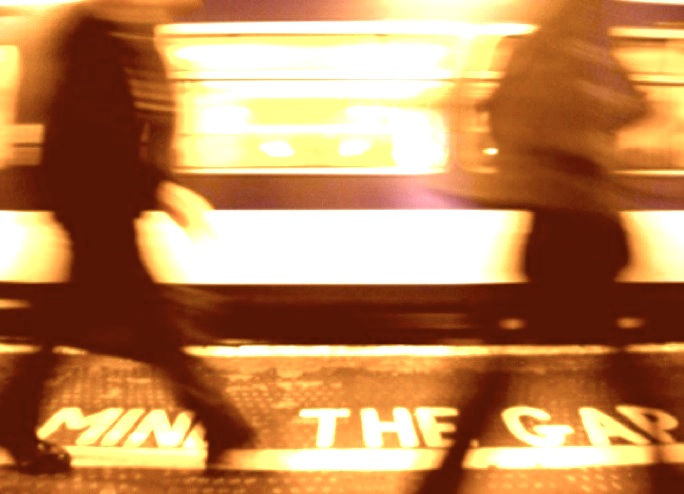"After a rain in New York all the dogs that got caught in the rain, somehow the water washed away their whole trail and they can't get back home so about 4 in the morning you see all these stranded dogs on the street and they're looking like - won't you help me get back home, sir, please - excuse me sir - can you help me find my way back home - all makes and models, the short ones, the black ones, the tall ones, the expensive ones, the long ones, the disturbed ones, they all want to get home."
- Tom Waits
So, all I have to say is that I would totally marry Tom Waits. His voice is like . . . a blackboard that someone threw a thousand glass whiskey bottles at until it was rougher than even an ocean would think possible. Kind of like that. There's something at once literary and wino-ish about him, a guy wearing a beautiful winter coat with its collar turned up shuffling through a rat-ridden alleyway at 3 am. Kind of like that. Like Bob Dylan, he's a white guy who knows how to make the blues his own. Except he's aged a little more gracefully, if you can call his hatted-hunch-shuffle "grace". Hell, you can. Hell, I do. Just like that.
Look at that cigarette. And that pure glee! And the hat, we can't forget the hat, because:
84 out of 100 women prefer men who wear hats. From an old subway car at the New York Transit Museum. Yes, I am THAT obsessed with public transportation. Actually, the museum is pretty awesome. But I'm too sleepy to talk about it now. I'm going to let Tom Waits sing me slow to sleep.
Monday, July 26, 2010
Tuesday, July 20, 2010
Animal, Vegetable, Miracle
I know that there’s a desire in me to go back to the land, live on a farm, grow my own wheat and take it to a mill, wake up with the sun, not to get to work, but to milk my cow for my morning cereal. I think this desire (well, maybe not the getting-up-before-sunrise part, but much of the rest) is one that’s in all of us. This wanting to feel connected to each other as humans, and to feel connected to our land, to our life in this most basic of ways. My sister gifted me this book a few years ago, and I can’t believe I waited so long to finish it. With a bit of wit and many folksy anecdotes, as well as facts garnered from Vandana Shiva, her husband (Professor Steven Hopp), and her own research, Barbara Kingsolver makes that longing seem like it can lead somewhere. Taking us through the trials and triumphs she and her family of four experience over a year of living off their land in Virginia, Kingsolver makes the case for eating locally and mindfully.
There are points where she does become a bit derisive—curiously, she becomes especially so towards vegetarians, pointing out that vegetable-growing does lead to the eradication of natives species through the destruction of habitats when wild land is cleared for farmland. However, she also concedes to the fact that her family does not consume meat that wasn’t grown locally and sustainably, and that they therefore have it very rarely. She also becomes a little angry at California for exporting so much food over so many miles (but I think she's just jealous).
Perhaps what she wants us to remember most is that food should not be an abstraction. Connecting to food also connects us to each other—to our friends and families, to the farmers to whom we provide business, to our communities at large. It’s important to keep in mind the kinds of relationships our food consumption fosters. When eating locally, we are helping our communities become healthier, are aiding farmers in having a hold on their livelihood, and are sending the message that these relationships are important to us. However, when consuming Chilean apples and Indian bananas, when we are consuming corn and soybeans farmed on great expanses of land and chickens raised on a factory farm, we are not developing positive relationships with people. Rather, we are telling food magnates that it is ok for our land, ecosystems, and health to be compromised by the overproduction of corn and soybeans. We are not paying a fair price for the labor of farmers on the other side of the world. We are smiling at oil companies who profit from the shipping of crops over unnecessarily long distances and saying that oil is something we’re willing to shed blood for. We're giving a thumbs-up to the intellectual piracy of companies like Monsanto and Du Pont. We’re ignoring the sweat that goes into food production. We’re ignoring investments on our land, and forgetting the future.
Kingsolver does not, however, shove guilt down our throats. She entices us by presenting the joys of growing (and eating!) good food with a strong sense of description and humour. It’s a great read!
Labels:
animal vegetable miracle,
barbara kingsolver,
books,
food
Subscribe to:
Posts (Atom)




